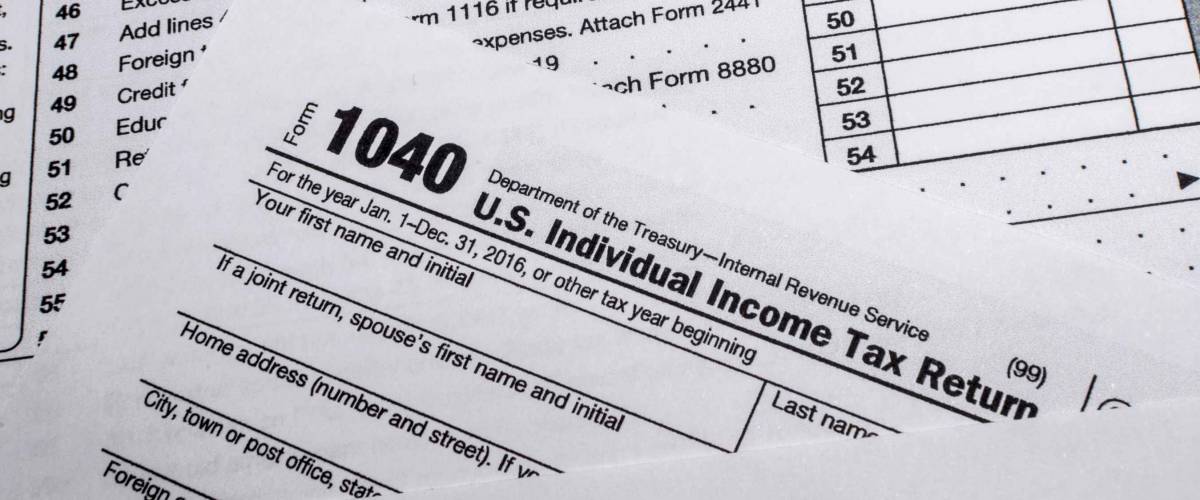When is life insurance taxed?

Life insurance payouts may be subject to taxes under the following scenarios:
- Your estate’s assets exceed $11.58 million.
- Your state has an inheritance tax.
- If you exceed the federal gift tax.
- If the death benefit skips a generation
- If the benefit is paid out in installments.
- When you withdraw gains ("cash value") from a permanent life insurance policy that exceed what you paid in.
- If you have a group life insurance policy that pays out more than $50,000.
- If you sell a life insurance policy.
Let's take a closer look at each of these exceptions.
You're leaving a high-value estate
In 2020, the federal estate tax exemption is $11.58 million dollars. If you’re fortunate enough to leave an estate worth more than that, the IRS will charge a tax of 18% to 40% on the excess amount.
Theoretically, life insurance proceeds could get dinged if they're part of a high-dollar estate.
To avoid the tax, you could use an irrevocable living trust to shield your assets from taxation. As long as you don’t die within three years of creating the trust, your beneficiaries, including your grandchildren, won’t have to pay taxes on the money they receive.
However, this isn’t an easy thing to set up, so you may want to hire a financial adviser to guide you through the process.
Your state has an inheritance or estate tax

Estate and inheritance tax laws vary from state to state, so your estate or heirs may have to pay taxes on the death benefit depending on where you live.
Six states have inheritance taxes, which require heirs to hand over a portion of what they've been left by a person who died. According to the nonprofit Tax Foundation, the states are:
- Iowa
- Kentucky
- Maryland
- Nebraska
- New Jersey
- Pennsylvania
Furthermore, the group says 12 states and the District of Columbia have their own estate taxes:
- Connecticut
- D.C.
- Hawaii
- Illinois
- Maine
- Maryland
- Massachusetts
- Minnesota
- New York
- Oregon
- Rhode Island
- Vermont
- Washington
If you’re discussing estate planning with your beneficiaries, be sure to look up whether your state has an estate or inheritance tax.
Also, remember that the laws are subject to change. The inheritance tax in my home state, Louisiana, was repealed in 2008.
Gifts
One way to avoid estate or inheritance taxes is by transferring your life insurance policy to a beneficiary while you're still alive.
You may have to pay a federal gift tax on the value of the policy at the time of the transfer, but the policy will be worth far less than the eventual death benefit.
The legal site Nolo provides an example of a policy that's valued at $26,000 while the insured is alive — but pays out $300,000 upon the person's death.
An individual can gift up to $15,000 a year to another person without incurring the tax. A married couple can give away $30,000 without inviting a tax penalty.
If you transfer a policy worth $26,000, you'll owe the gift tax on $11,000 of that value ($26,000 minus $15,000).
Note that the policy's new owner will have to continue to make the payments.
If the death benefit skips a generation
What happens if you decide to skip your kid and give the death benefit to your grandchild instead? While your grandchild would certainly appreciate your generosity, the money would be considered taxable income by the IRS.
Why? Because of something called the "generation skipping transfer tax." It kicks in when you give any gift or inheritance to a family member who's more than one generation younger than you — or to a nonrelative who's more than 37.5 years younger.
Life insurance is paid out in installments
Even though life insurance benefits are usually paid out in a lump sum, some people elect to have their benefits paid out over time. What’s the reasoning behind this? You may want to prevent young relatives from spending their inheritance all at once.
To make sure they don’t blow it, you tell the insurance company to pay out the money in installments instead.
Sounds like a wise financial decision, right? It can be, but if you decide to go this route you'll want to warn your heirs that they’ll face taxes on any interest that's added to the benefits while they're being held back.
Cash value policies

With permanent life insurance policies that cover you for life (as opposed to limited-time term life policies), there’s a savings component called cash value. The way it works is that during the life of the policy, a portion of your paid premiums funds the cash value account.
If you find yourself in a bind financially, you can make a withdrawal from your cash value.
As long as you make a withdrawal that’s less than the amount you've paid into the policy, you won’t be taxed. But anything over that amount — in other words, your returns — will trigger income taxes.
Group life insurance policy
Many companies offer life insurance as a benefit to their employees. For example, my employer gives all of its employees a term life insurance policy of $25,000 at no cost when they’re hired.
If you have a similar policy at your job, the premiums won’t be considered taxable income unless the promised life insurance payout exceeds $50,000.
If you sell your life insurance policy
The last scenario that can be a taxable event is if you sell your life insurance policy for cash to a buyer or investor who will continue to make the payments and will receive the death benefit when you die.
You'll face taxes on any gain you make from the sale. For example, if you’ve paid $40,000 in premiums over the years and sell your policy for $50,000, you'll be taxed on the $10,000 profit.
Stop overpaying for home insurance
Home insurance is an essential expense – one that can often be pricey. You can lower your monthly recurring expenses by finding a more economical alternative for home insurance.
SmartFinancial can help you do just that. SmartFinancial’s online marketplace of vetted home insurance providers allows you to quickly shop around for rates from the country’s top insurance companies, and ensure you’re paying the lowest price possible for your home insurance.
Explore better ratesSo when exactly is life insurance tax-free?
As you've seen, here are several scenarios where money from a life insurance policy is taxed. But if you have a term life insurance policy with a lump sum payout, then neither your estate nor your beneficiaries will have to worry about taxes.
Even if you have a high-value estate, there are tax minimization strategies you can use to shield your assets from taxation.
If you’re still confused about how insurance contracts work, you'll want to reach out to a tax specialist or a certified financial planner for advice. They’ll be able to give you more specific advice based on your unique financial circumstances.
More: Check out Quotacy to find the best insurance policy available to you.
Sponsored
Unexpected vet bills don’t have to break the bank
Life with pets is unpredictable, but there are ways to prepare for the unexpected.
Embrace Pet Insurance offers coverage for treatment of accidents, illnesses, prescriptions drugs, emergency care and more.
Plus, their optional wellness plan covers things like routine vet trips, grooming and training costs, if you want to give your pet the all-star treatment while you protect your bank account.






